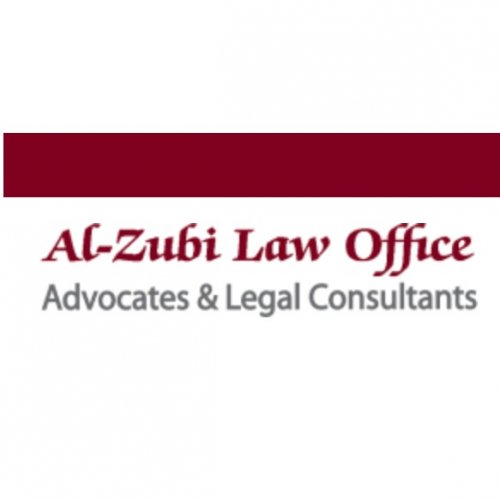Best Tax Increment Financing Lawyers in Nablus
Share your needs with us, get contacted by law firms.
Free. Takes 2 min.
List of the best lawyers in Nablus, Palestine
About Tax Increment Financing Law in Nablus, Palestine
Tax Increment Financing (TIF) is an economic development tool used to encourage infrastructure improvements and private investment. In Nablus, Palestine, TIF is employed as a means of stimulating economic growth and urban development. It allows municipalities to focus on specific areas in need of redevelopment by earmarking future property tax revenue increases resulting from the new development to finance the project. This creates a financially viable way to transform underdeveloped or underutilized regions, enhancing the overall economic well-being of the community.
Why You May Need a Lawyer
Engaging in Tax Increment Financing initiatives can be complex, requiring careful legal navigation. Common situations necessitating legal assistance include:
- Understanding the Legal Framework: To ensure compliance with local regulations and avoid any legal pitfalls.
- Drafting and Negotiating Agreements: Legal expertise is crucial in formulating clear terms that safeguard your interests.
- Dispute Resolution: Lawyers can represent you in resolving conflicts with municipal authorities or other stakeholders.
- Financing and Taxation Issues: Advising on financial aspects and tax implications of TIF projects.
Local Laws Overview
Key aspects of local laws related to Tax Increment Financing in Nablus include:
- Eligibility Criteria: Specific prerequisites that areas must meet to be designated as TIF zones.
- Approval Process: Detailed procedures for submitting TIF proposals and obtaining necessary approvals from municipal authorities.
- Fiscal Management: Guidelines on how tax increments are collected and allocated to finance public improvements.
- Reporting Requirements: Obligations for regular updates and transparency in spending and progress reports.
Frequently Asked Questions
What is the purpose of Tax Increment Financing?
TIF is designed to stimulate economic development and infrastructure improvements in underdeveloped areas by using future tax revenue increases to fund current projects.
How are TIF funds generated?
Funds are generated through the rise in property taxes collected from the increase in property values following redevelopment in a designated TIF district.
Who benefits from TIF projects?
Both the public and private sectors benefit; public infrastructure improvements enhance community well-being, while private investors can attract new business opportunities.
Are there risks associated with TIF?
Potential risks include overestimating future tax increments, which can lead to funding shortfalls, and the possible displacement of existing residents due to increased property values.
Can TIF be used in residential areas?
Yes, TIF can be employed to redevelop residential areas, particularly to improve infrastructure and housing conditions.
How long do TIF districts last?
The length of TIF districts varies based on the project size and scope, typically lasting between 15 to 25 years to ensure sufficient tax increment collection and project funding.
What types of projects can TIF finance?
TIF can finance a variety of projects, including infrastructure improvements, roads, schools, parks, and site preparation for commercial and residential areas.
How do I propose a TIF project?
Engage with local authorities to understand the criteria and submit a detailed proposal outlining your development plan, expected benefits, and financial analysis.
What happens if a TIF project fails?
Failure of a TIF project can lead to financial losses; however, risks are mitigated through careful planning and realistic projections by involved stakeholders.
Is public input considered in TIF decisions?
Yes, public hearings and consultations are typically part of the TIF planning process to ensure community involvement and support.
Additional Resources
For more information and assistance regarding Tax Increment Financing in Nablus, consider reaching out to:
- Nablus Municipality - Responsible for urban development and TIF project approvals.
- Palestinian Investment Promotion Agency - Offers guidance on investment opportunities and financial incentives.
- Local Economic Development Offices - Provide insights and support for local business and development projects.
Next Steps
If you need legal assistance with TIF in Nablus, consider the following steps:
- Consult with a Legal Expert: Seek specialized legal advice to understand your rights and obligations.
- Prepare Documentation: Gather all relevant documents, including project proposals and financial data, to discuss with your lawyer.
- Engage Early: Involve legal expertise early in the TIF process to avoid potential legal challenges and ensure smooth project execution.
- Utilize Available Resources: Leverage local resources and governmental support to strengthen your project's viability and compliance.
Lawzana helps you find the best lawyers and law firms in Nablus through a curated and pre-screened list of qualified legal professionals. Our platform offers rankings and detailed profiles of attorneys and law firms, allowing you to compare based on practice areas, including Tax Increment Financing, experience, and client feedback.
Each profile includes a description of the firm's areas of practice, client reviews, team members and partners, year of establishment, spoken languages, office locations, contact information, social media presence, and any published articles or resources. Most firms on our platform speak English and are experienced in both local and international legal matters.
Get a quote from top-rated law firms in Nablus, Palestine — quickly, securely, and without unnecessary hassle.
Disclaimer:
The information provided on this page is for general informational purposes only and does not constitute legal advice. While we strive to ensure the accuracy and relevance of the content, legal information may change over time, and interpretations of the law can vary. You should always consult with a qualified legal professional for advice specific to your situation.
We disclaim all liability for actions taken or not taken based on the content of this page. If you believe any information is incorrect or outdated, please contact us, and we will review and update it where appropriate.









